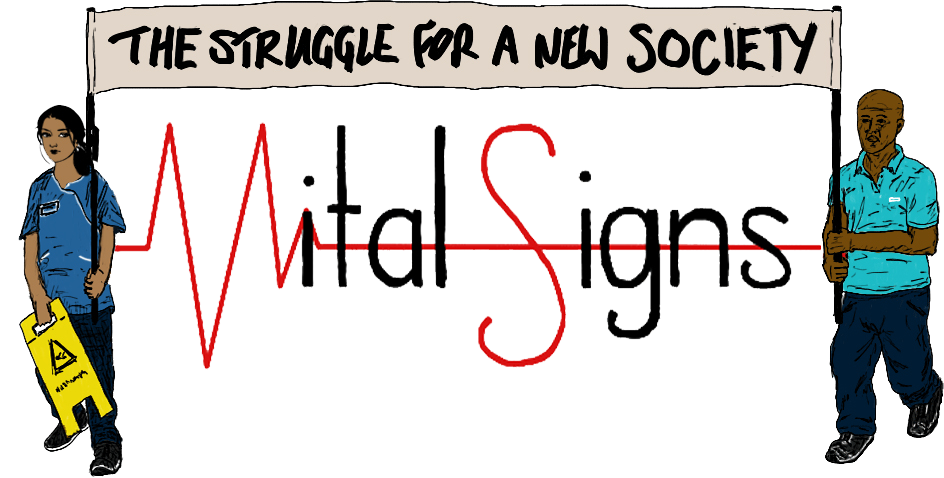This article will be circulated in Vital Signs Mag no.4, of which we distribute 1,000 copies within our two local hospitals. Feel free to help us with the print cost.
What is the issue?
I work on wards and in theatres. Although it sucks, I am not surprised if male public school bully consultants make young female nurses cry. Some of them are just arrogant choleric dickheads. It surprises me that many female nurses are depressed or even leave the team because of shitty dynamics with other nurses. I am also a union rep and meet people who complain about tensions with co-workers in hospital offices and labs, so it seems to be more of a general problem. Often it is difficult to put a finger on the issue. It’s rare that there is open bullying, it’s a more subtle process of inclusion and exclusion, of cooperation and non-cooperation, of being in the in-group or not. It can be things like who gets a good-bye party or who gets praised on the team WhatsApp. These seem small things, but I can see that they lead to people retreating and feeling down. From working on construction or in factories I am used to people treating each other roughly, but I haven’t witnessed these kinds of exclusionary team dynamics before.
What could be the reasons?
There are very obvious reasons. If you put a group of people under stress, e.g. through understaffing, and divide them through a formal hierarchy, which excludes most of them from information and decision making, you will create a fertile ground for shitty dynamics. Add a high fluctuation to the mix, e.g. through bank or agency work, and it will be difficult for people to establish stable and trustworthy relationships. Particularly in theatres, nurses often focus on the behaviour of consultants and pass their bad vibes down the chain of command. The in-groups form largely around the Band 6 team leaders, and as most of the Band 6 nurses are British, the in-group is also fairly British. There is a shared culture of the usual British witty banter, which is fine, but it also means that the in-group reproduces itself. You only learn the tricks and have a better chance of becoming a Band 6 if you are in the in-group.. But all this seems too obvious.
In the UK it seems that there is something that has been lost that used to be common sense.. People don’t seem to understand themselves as workers, who act in solidarity with other workers because we are forced to cooperate and we are exploited together. There is little sense of basic community. This is perhaps reinforced by the fact that most nurses enter through university degrees, which have the aura of personal career choices, individual debt and so on. There are less clear codes and cultures of ‘being work-mates’. A work-mate is your mate by default, and if they act like a dick or are not pulling their weight you can tell them straight and things are good again. Because this culture is gone or has not been established, people are afraid to talk openly to each other. There is a lot of fake politeness and a lot of gossiping behind peoples’ backs. Hospital management encourages this kind of hypocrisy, as they boast about how anti-racist they are, but then use the fact people depend on work visas to blackmail them. They talk all politely and politically correct about tolerance and dignity, but accept that cleaners, porters, house keepers and many others are only just above the minimum wage despite working for the NHS for decades. Perhaps there is an additional dimension of competition amongst female colleagues – in recent decades the media and mainstream have emphasised how important career and success is for women’s independence, while at the same time ideas like class solidarity have been undermined.
What can be done?
Of course there are deep psychological reasons for team dynamics. We all play out childhood shit and wish for maternal or paternal acceptance and perhaps there will be some space to heal that in future. But what can we do in the meantime? It’s a bit of a Catch 22. On one hand, the current team dynamics often undermine our ability to act in solidarity and we often don’t stand up for ourselves when it comes to under-staffing or cuts to bank enhancements or other small attacks from management. On the other hand it is exactly a feeling of acting together that could help to overcome divisions and exclusions within the group. So we have to start from the fact that we have to work together and that we all have an interest to organise this in a way that leaves us some space to breath and head-space to think. If someone doesn’t pull their weight, why not ask them straight what’s up? Perhaps they are really exhausted for some reason that is not obvious? Or they don’t get what is happening? Or they are pissed off with you for some reason? Or they might actually just need telling. That’s better than bearing a grudge, gossipping or grassing to management. In the medium-term we can only feel ‘at home’ amongst ourselves and at work if we take over more control over our work environment together. It’s a bit lame to say, but yes, we spend more time with each other, than with our family. We need to have each others’ back.
We come across a lot of people who suffer from and complain about team dynamics, but there is little collective discussion about this phenomena. We are grateful for any comments.




